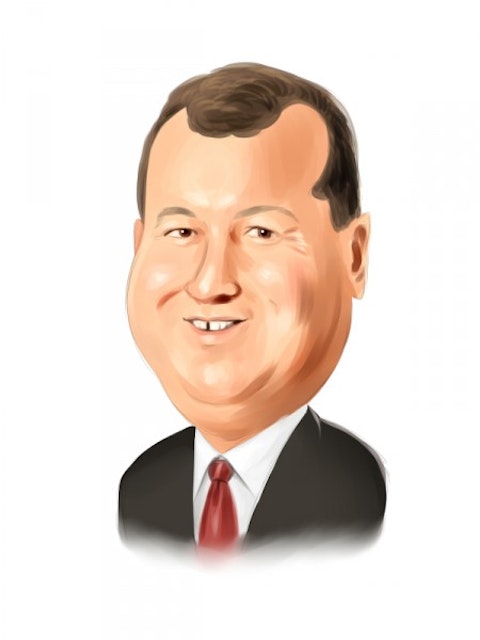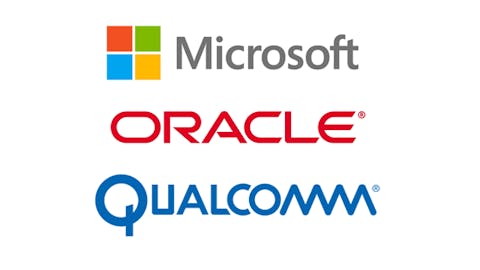Tom Gayner’s Markel Gayner Asset Management, the investment division of Markel Corporation (NYSE:MKL) has filed its latest 13F with the Securities and Exchange Commission, disclosing the holdings in its equity portfolio as of the reporting period of March 31. This is the first of a series of articles we’ll be doing on the portfolio of Gayner, one of the most successful investors of the past two decades. Most recently, Gayner’s equity portfolio has delivered five year weighted average returns of over 20%.

Markel Corporation (NYSE:MKL)’s stock has also delivered strong returns to investors, partly on the strength of Gayner’s investing acumen, as well as the financial holding company’s profitable insurance business. Markel Corporation shares are up by 14% year-to-date after another strong quarterly earnings report, and by more than 120% over the past five years.
Gayner emphasizes four key investment philosophies, beginning with the key tenet of value investing, which is to seek out undervalued companies. In addition, Gayner searches for companies with competent and ethical management, companies which have strong avenues for reinvesting in their operations, and finally, companies which deliver high returns on capital. With that in mind, let’s take a look at the top three value picks of Gayner, all of which he has held throughout the past five years.
CarMax Inc. (NYSE:KMX) continues to sit atop Gayner’s equity portfolio as it has for the past five years. The investor’s current holding is comprised of 4.91 million shares valued at $339.05 million and accounting for 8.57% of his exposure to U.S equities. Gayner first started buying into CarMax Inc. (NYSE:KMX) back in the late 90’s as the stock slid from $10 down to less than $1 (factoring in the 2:1 stock split in 2007). While the used car seller had run into operational challenges from overly aggressive expansion, Gayner believed in the company’s management as well as its business niche. His belief paid off, as CarMax Inc. (NYSE:KMX) righted its ship and has taken off since, expanding from a handful of locations at the time to more than 140 outlets spread across the U.S. Shares have gained over 7% year-to-date to top $70 for the first time, with its most recent earnings report for the fiscal fourth quarter of 2015 showing a big gain in revenue quarter on quarter at $3.51 billion, a 14.2% rise, and an even more impressive growth of 44.3% in earnings, to $143.1 million. First Pacific Advisors, managed by Robert Rodriguez and Steven Romick is another fund which has been invested in CarMax for many years, though with a smaller position and less exposure to the stock than Gayner.
Moving past Gayner’s positions in the Class A and Class B shares of Warren Buffett’s holding company Berkshire Hathaway Inc. (NYSE:BRK.A), we come next to Walgreens Boots Alliance Inc (NASDAQ:WBA), the multinational holding company that owns Walgreens, Boots, and Alliance Healthcare, as per its namesake, as well as a number of other subsidiaries including Duane Reade. The holding company’s subsidiaries are primarily engaged in the manufacture and sale of pharmaceutical products, while its stock has long been a dividend aristocrat. Gayner owns a position of 2.14 million shares of Walgreens Boots Alliance Inc (NASDAQ:WBA), which began trading on the NASDAQ at the end of December following its full acquisition of Boots. The value of the position stood at $180.79 million as of the reporting period, while shares of Walgreens Boots Alliance Inc (NASDAQ:WBA) are up by more than 10% this year.
As mentioned, this is also a longterm holding of Gayner, who held the previous incarnation of Walgreens’ stock dating back to 2007. From 2008 through 2014 that stock gained just under 100%. The stock was on a particularly torrid run through 2013 and the first half of 2014 until it was announced in early August that the company’s CFO had been replaced, followed by Walgreens dramatically lowering its guidance for fiscal 2016 two days later. That led to shares crumbling by 14% and has prompted securities lawyers at Dunnam & Dunnam to launch an investigation into possible corporate wrongdoing. Andreas Halvorsen’s Viking Global and Barry Rosenstein’s JANA Partners are among the major shareholders of Walgreens Boots Alliance Inc (NASDAQ:WBA) who will likely be paying close attention to that investigation.
Finally we come to Walt Disney Co (NYSE:DIS), in which Gayner holds a position of 1.54 million shares with a value of $161.69 million. Walt Disney Co (NYSE:DIS) is up by more than 225% over the past five years, and more than 16% in 2015, defying at least one analyst who considered it “the short of 2015”, towards the end of 2014. That analyst, A&G Capital CIO Hilary Kramer, believed Disney was riding the coattails of the incredible success of Frozen and had yet to meaningfully try and find its replacement despite Disney being poised to increase its film production in 2015 and release a new Star Wars film in December. On the other hand, Seventh Capital Managing Partner Monica Mehta described Disney as being “awesome” and “ a longterm play”, which Gayner has known and benefited from for years. Billionaire Ken Fisher is another longterm shareholder of Disney and its largest shareholder in our database today.
Professional investors like Gayner spend considerable time and money conducting due diligence on each company they invest in, which makes them the perfect investors to emulate. However, while Gayner’s returns have been strong the past five years, we also know that the returns of hedge funds on the whole have not been good for several years, underperforming the market. We analyzed the historical stock picks of these investors and our research revealed that the small-cap picks of these funds performed far better than their large-cap picks, which is where most of their money is invested and why their collective performances have been poor. A portfolio of the 15 most popular small-cap stocks among funds outperformed the S&P 500 Total Return Index by 95 basis points per month between 1999 and 2012 in backtesting. The exceptional results of this strategy got even better in forward testing after the strategy went live at the end of August 2012. A portfolio consisting of the 15 most popular small-cap stock picks among the funds we track has returned more than 137% and beaten the market by more than 82 percentage points since then, and by 4.6 percentage points in the first quarter of this year (see the details).
Disclosure: None




